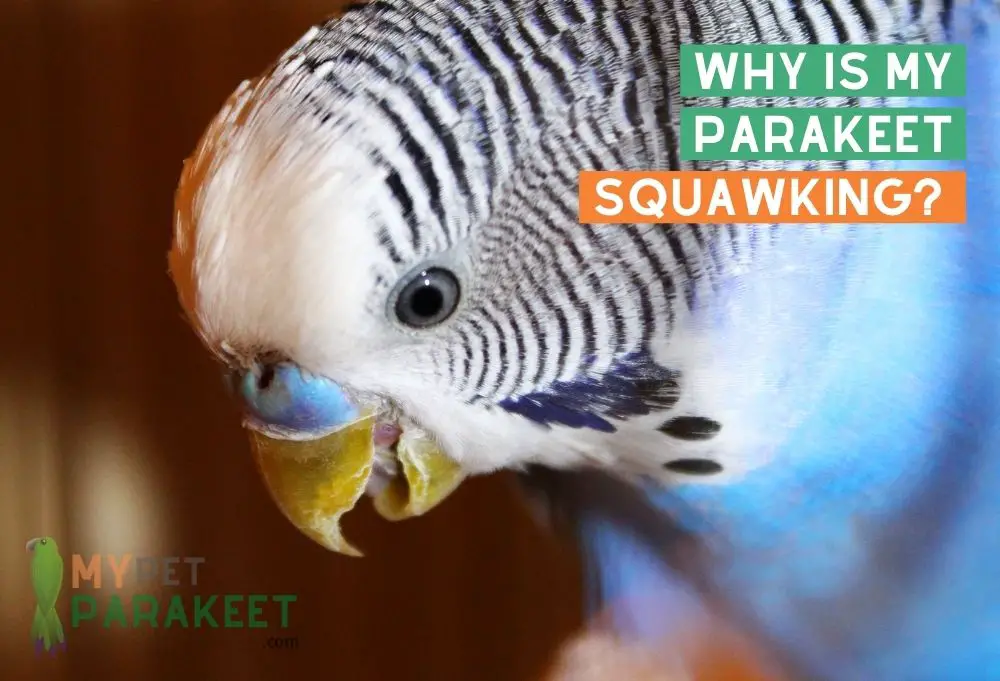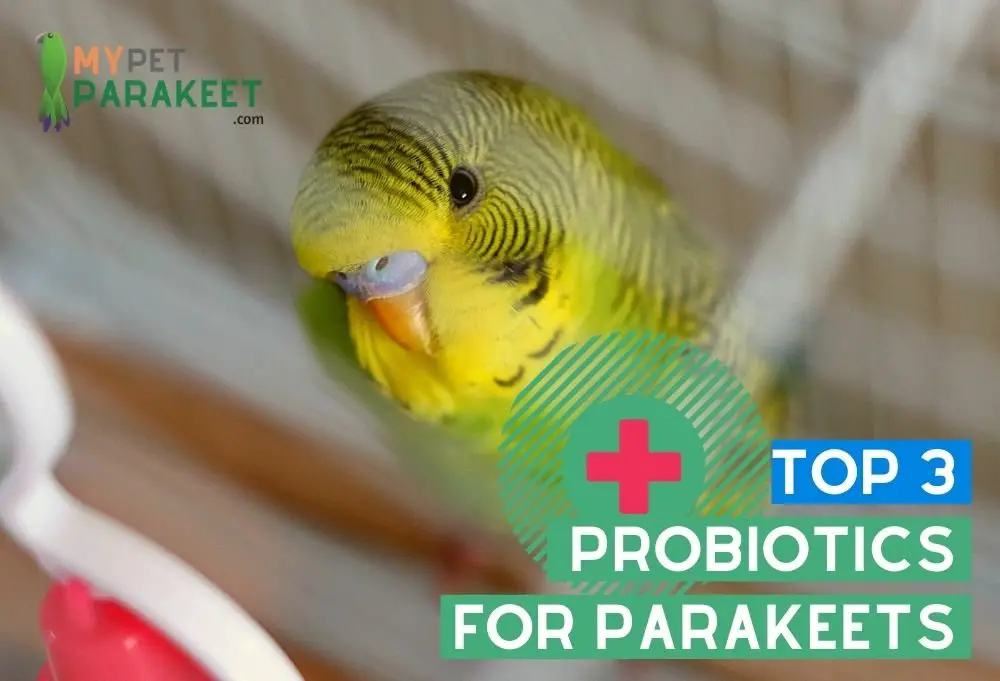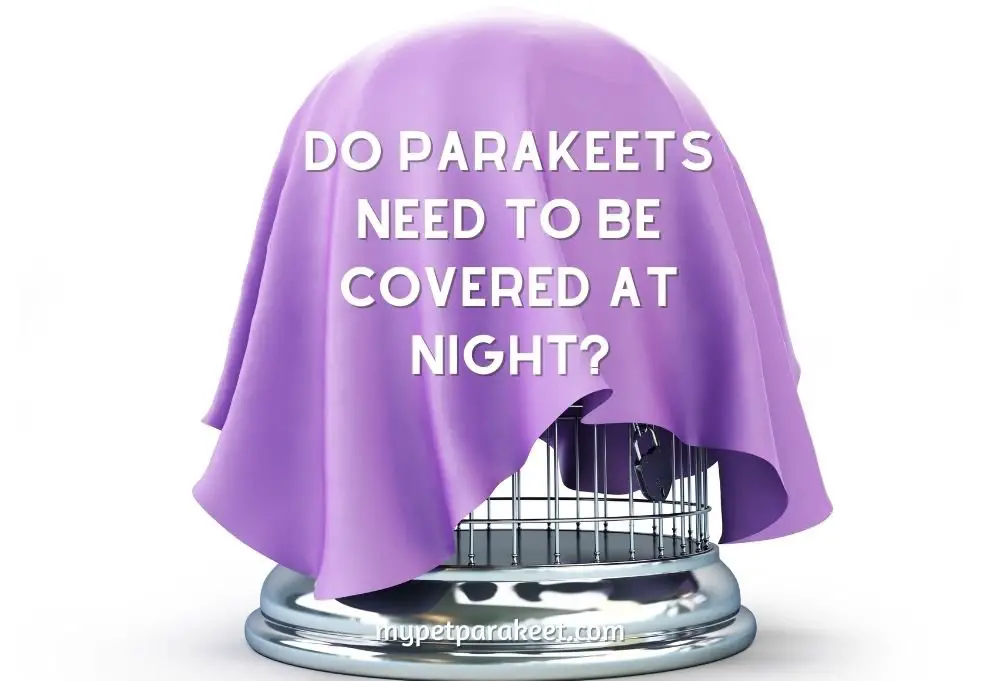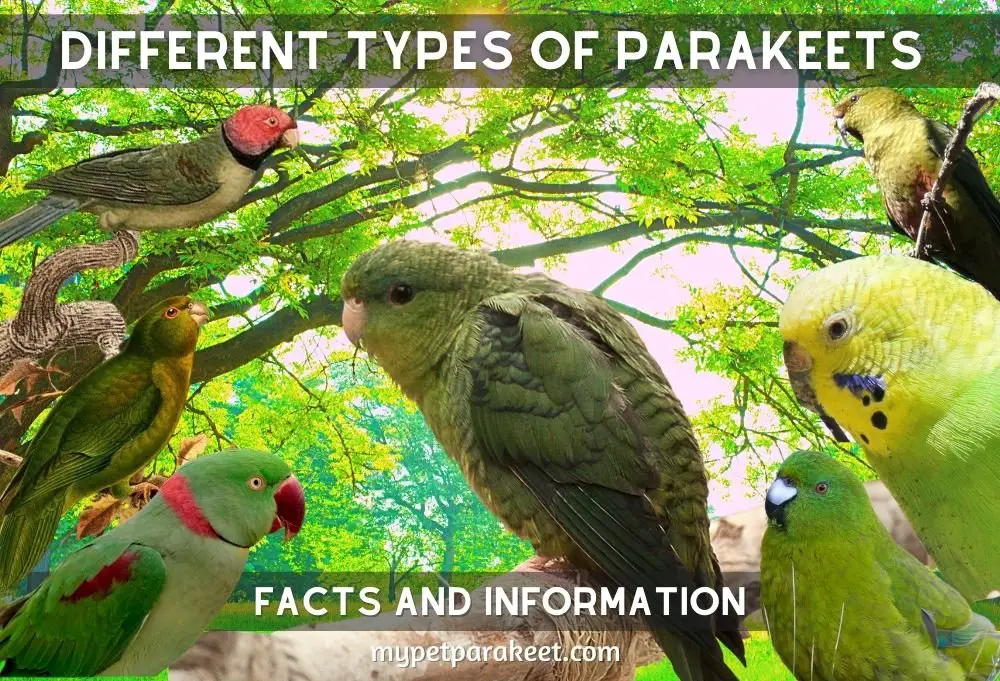The sound of your parakeet squawking is not the most soothing noise to hear, particularly in the middle of the night!
Squawking is just one of many natural sounds your parakeet will make. All the noises a parakeet makes mean something and can tell you about how your parakeet is feeling.
When your parakeet squawks it can mean a range of different things. It can indicate stress, annoyance, pain or fear. It may be seeking attention from you or an alarm calling to alert you of potential danger.
In this article, we will explore squawking behavior in more detail and how to reduce the amount of squawking your parakeet does.
Reasons Your Parakeet Is Squawking
Squawking is just one of a wide range of vocalizations your parakeet can make and it is definitely up there in terms of the most unpleasant noise.
There is a long list of reasons your parakeet may squawk and determining the reason for the noise will involve using some context clues or a process of elimination.
Stress
Stress can come in many forms for your parakeet, for example:
- Social changes – new birds or loss of a mate
- New environment
- New family members
- Loud noises
- New routine
- Hunger
- Change in diet
- Pain
The list goes on! Parakeets can be finicky animals and sensitive to changes. These stressors can cause a squawking response. You should look to remove the problem causing stress and when stress comes from unavoidable changes, introduce things slowly and with lots of positive reinforcement.
We will explore stress more in this article as prolonged stress can cause some serious issues.
Fear
Wild parakeets live in large flocks and when they see a threat such as a predator they will loudly alarm call to alert their friends of the threat.
If your parakeet sees something it sees as a threat, whether that may be another pet in the room or a strange light out the window, squawking is a normal response. Test this by removing the thing you believe to be eliciting the fear response.
Angry/Frustrated
Squawking behavior is something that is loud and assertive and is a go-to noise for a bird who is overwhelmed with emotion. I’m sure most of us can relate to an outburst of emotion being verbalized!
For parakeets this is usually caused by anger – is something or someone bothering it? Or frustration – is it having trouble working out a new toy?
Learned Behavior
Parakeets are not simple-minded, they clue on to things very quickly. Most of their behaviors are shaped by simple conditioning. Squawking can become a problem when your parakeet has been reinforced every time it squawks.
If your parakeet squawks and you come running to talk to it and comfort it, it’s more than likely that your parakeet has learned you will do this and is using squawking as attention-seeking behavior.
When Is Squawking Not Normal?
Some squawking is normal as your parakeet experiences the regular highs and lows as life as a parrot.
Some stress is ok, as stress is what drives animals' behaviors. It’s important that stress is not intense and prolonged otherwise it can become distressing. Distressing situations can have lasting physical and emotional effects on a parakeet.
Squawking behavior is not normal if it is continuous or is disrupting the sleep of the parakeet.
Your parakeet should be resting through the night, if it is squawking constantly then something is wrong!
Signs Of Stress In Your Parakeet
Alongside squawking, you can identify if your parakeet is stressed by looking at the bigger picture of its behavior. Some more signs of stress include:
- Stress bars on new feather growth
- Aggression/biting
- Fear
- Stereotypical behaviour (repetitive behaviour)
- Self-mutilation
- Loss of appetite.
If you are observing a range of these concerning behaviors there may be some underlining factor that is causing your parakeet to be stressed out and maybe the key to the excess squawking you are hearing.
How To Calm A Squawking Parakeet
When you think your parakeet is squawking because it is stressed of course you want to remedy the situation as quickly as possible so your parakeet can be happy, relaxed, and normal.
Because there is a massive range of things that may be causing your parakeet to be squawking, it may take some time to identify the issue.
If you have a parakeet that is clearly under some stress and will not stop squawking. Follow these steps:
- Remove anything from the environment that may be causing your bird stress. This may be in their enclosure, or outside the enclosure. Ensure the cage is in a quiet place away from the activity of the household.
- Move slowly and speak softly. Parakeets are very in tune with your body language and will respond accordingly. Make sure you are relaxed and in control. If you are stressed it will make matters worse for your stressed parakeet.
- When your parakeet starts to calm. Use a lot of positive reinforcement. Talk to your bird and give it all its favourite treats when it displays calm behaviour.
- Distract your bird with a lot of entertainment. Favourite toys and enrichment may capture your parakeet’s attention and help to calm it down.
Once you have a calm bird you can then go on to identify the cause of the stress and squawking and remedy the situation.
How To Reduce A Parakeets Squawking
Removing Stressors
- Location – the location of the cage may be causing your bird to be annoyed or scared. Make sure the cage is in a quiet location and there’s nothing that can stress your bird. Even near an open window can expose your parakeet to sounds and sights that can be stressful.
- Other animals – other birds in the cage or nearby might be causing your parakeet to be unhappy. If you think your parakeet is squawking at its friend they may need to be separated or a visual barrier between cages.
- New items – parakeets are creatures of habit and new things can be scary! Introduce new items slowly and with lots of positive reinforcement.
Cover The Cage At Night
If your parakeet is squawking a lot through the night then it may be disrupted by lights and shadows it can see throughout the night. Your hanging robe may look like a predator in the dark to a little bird!
Covering the cage at night is proven to help parakeets that become disrupted in the night as it reduced the visual stimulation of the bird and provides a sense of safety to encourage rest.
Socialization
If your parakeet is squawking a lot at other birds or people in the household. It likely needs more socialization!
For an anti-social parakeet, this can be a big feat but be patient and consistent with your efforts and provide a lot of positive reinforcement for positive behaviors.
Don’t force them! Offer your parakeet opportunities to interact and make socialization appealing and over time it will have positive associations with social interacts and will be less stressed by other birds or people.
Calming Supplements
Some parakeets are more on edge or irritable by nature than others. All parakeets have their personalities. If nothing you try helps ease persistent squawking then you can contact your vet to explore the possibility of providing it with a calming supplement.
Vet Check
Your parakeet’s excess squawking may not have an obvious cause and may be due to pain or discomfort. Your vet will be able to do a full health screening and find out if anything is going on health-wise.
A vet will also be able to help assess your husbandry and discuss your environment and diet to help identify a hidden cause of stress.
Conclusion: Cut Them Some Slack!
Ultimately your parakeet will squawk, it’s completely natural. Parakeets are noisy animals.
Although squawking isn’t the most lovely noise to hear, it is part of owning a pet parakeet. So cut them slack if they are rambunctious!
Just ensure you know the difference between normal behavior and what is a response to ongoing stress. Monitor changes in behavior to note any differences and what may have caused them – and enjoy your chattery parakeet!









